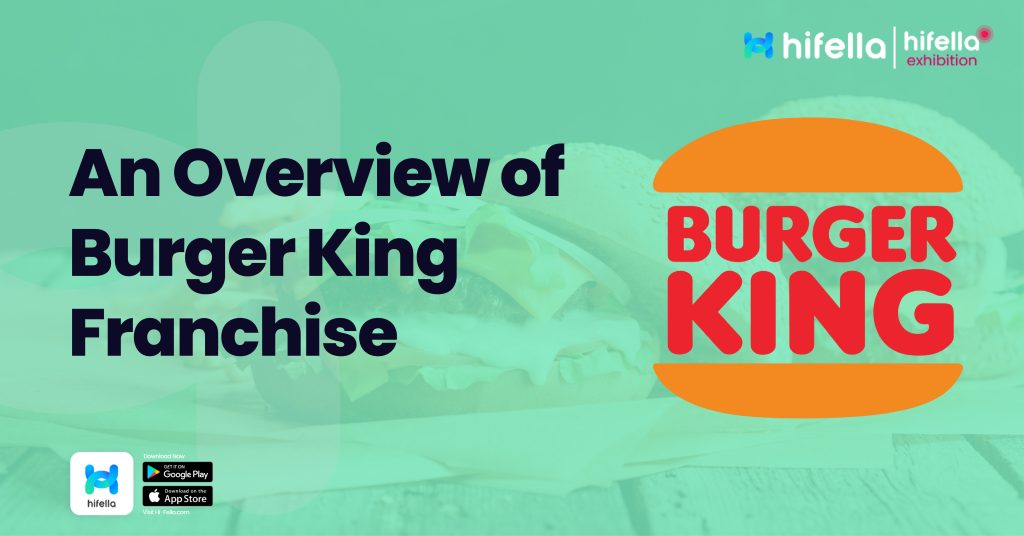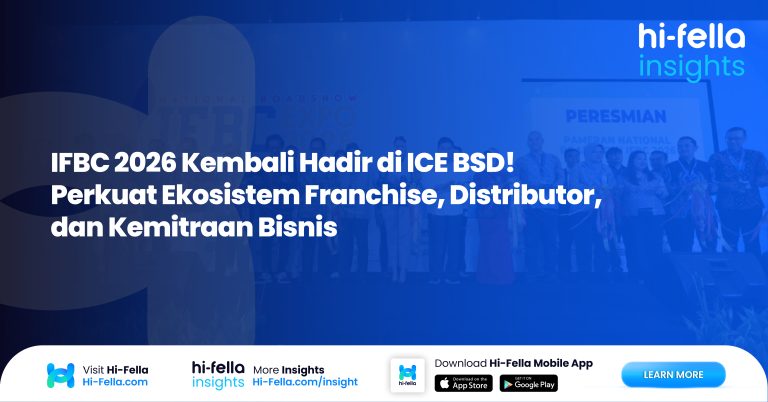If you’ve ever thought about owning a fast-food franchise, the Burger King brand might be at the top of your list. With its global recognition and proven business model, becoming a Burger King franchisee is an attractive opportunity for entrepreneurs and investors.
However, before diving into this venture, it’s important to understand the costs, requirements, and benefits involved.
In this guide, we’ll break down everything you need to know about owning a Burger King franchise, helping you decide whether it’s the right investment for you.
Introduction to Burger King and Its Franchise Model

Source: The Wolf of Franchises
The Burger King franchise is one of the most well-known fast-food chains globally, offering franchisees a unique opportunity to own a piece of a brand recognized for its iconic flame-grilled burgers.
With thousands of outlets worldwide, Burger King provides a solid business model for aspiring entrepreneurs interested in entering the fast-food industry.
Franchisees are provided with operational support, marketing resources, and brand recognition that can be difficult to achieve independently.
History and Growth of the Burger King Franchise

Source: LiveAbout
Burger King started in 1953 in Miami, Florida, as Insta-Burger King, a drive-in restaurant by Keith Cramer and Matthew Burns.
When it didn’t succeed, they sold the rights in 1959 to Miami businessmen David Edgerton and James McLamore, who renamed it Burger King. Under their leadership, the brand grew quickly, and in 1967, it was sold to the Pillsbury Company.
Now, Burger King is a global brand with over 18,000 restaurants in more than 100 countries. It’s famous for flame-grilled burgers, especially the Whopper, along with other menu items like chicken, salads, and desserts.
Requirements and Costs of Owning a Burger King Franchise
Owning a Burger King franchise comes with specific requirements, both financially and operationally. Here’s an overview:
- Initial Investment
The total cost to open a Burger King franchise ranges from $316,100 to $2,660,600, depending on the location, size, and other factors. - Franchise Fee
Burger King requires an upfront franchise fee of $50,000 for a new restaurant. - Royalty and Marketing Fees
Franchisees must pay ongoing royalty fees of 4.5% of gross sales and contribute 4% of gross sales to national advertising campaigns.
- Financial Requirements
Potential franchisees must have a minimum net worth of $1.5 million and $500,000 in liquid assets.
Apart from the financial requirements, Burger King also looks for franchisees who have prior experience in business operations, particularly in the food service industry, as well as a willingness to adhere to the brand’s guidelines and standards.
Benefits of Becoming a Burger King Franchisee
Owning a Burger King franchise comes with numerous benefits:
- Brand Recognition
As one of the most recognized fast-food brands globally, franchisees benefit from strong consumer loyalty and a well-established customer base. - Operational Support
Burger King offers franchisees comprehensive training and ongoing operational support, which can be invaluable for first-time business owners. - Marketing Power
With a global marketing strategy and a strong presence in the fast-food industry, Burger King invests heavily in advertising, ensuring that franchisees benefit from large-scale marketing efforts. - Proven Business Model
The franchise model is tried and tested, reducing the risk that comes with starting a new business from scratch.
Challenges and Considerations for Burger King Franchise Owners

Source: TastingTable
While owning a Burger King franchise presents many opportunities, there are challenges and considerations to keep in mind:
- High Initial Costs
The significant upfront investment required to open a Burger King franchise can be prohibitive for many. The initial costs include franchise fees, real estate purchases or leases, construction, equipment, furniture, and branding.
Additional expenses such as staffing, inventory, and initial marketing efforts further add to the financial burden.
Franchisees must also meet Burger King’s financial criteria, which often includes having substantial liquid assets and net worth, making it crucial for potential owners to assess their financial capacity.
- Competition in a Saturated Market
The fast-food industry is highly competitive, with major players like McDonald’s, Wendy’s, and other regional and international brands aggressively competing for market share.
As a Burger King franchise owner, you will face the challenge of standing out in a crowded marketplace, where price wars, new menu innovations, and customer loyalty programs are constantly at play.
Successfully differentiating your location through excellent service, strategic marketing, and community involvement is key to thriving in this environment.
- Operational Demands and Labor Management
Managing a Burger King franchise demands significant time and effort. As a franchisee, you are responsible for overseeing daily operations, including staff management, customer service, inventory control, and adherence to food safety regulations.
Consistency in maintaining the brand’s high standards for food quality, cleanliness, and customer experience is crucial. Franchise owners often find themselves working long hours, especially in the initial phase of the business, to ensure smooth operations.
Additionally, the fast-food industry is known for high employee turnover, and managing a reliable, well-trained staff can be a constant challenge.
- Franchisee Obligations and Restrictions
One of the biggest advantages of franchising is the structured system that comes with an established brand. However, this also means that franchisees must strictly follow corporate guidelines and operational procedures set by Burger King.
From approved suppliers to menu items, promotions, and store layouts, franchisees have limited autonomy to make changes or tailor their offerings to local preferences. While this consistency helps maintain brand integrity, it can also feel restrictive for entrepreneurs who want to exercise more creative control over their business.
- Economic Factors and Profitability
The profitability of a Burger King franchise can be influenced by broader economic conditions. Fast food is a highly price-sensitive industry, and fluctuations in food, labor, and utility costs can directly impact margins.
Franchisees need to be adept at challenges of inflation, minimum wage increases, and rising supply chain costs, all while maintaining competitive pricing.
Moreover, economic downturns can affect consumer spending habits, potentially leading to reduced sales, especially for non-essential fast-food purchases. Franchise owners must be prepared to adapt their business model to mitigate these risks.
- Ongoing Fees and Royalties
In addition to the initial franchise fee, Burger King franchisees must pay ongoing royalties, typically a percentage of gross sales, as well as contributions to national marketing funds.
These fees are non-negotiable and can impact profitability, particularly in the early stages of the franchise when sales are lower. Franchisees must factor these ongoing costs into their financial planning to ensure the business remains viable in the long term.
- Changing Consumer Preferences
The fast-food industry is constantly evolving as consumer preferences shift toward healthier, more sustainable, and ethically sourced food options.
While Burger King has introduced items such as plant-based burgers to appeal to health-conscious customers, franchisees must stay up-to-date to these trends and ensure their locations meet changing consumer demands.
Adapting to dietary trends like veganism, gluten-free options, and sustainability efforts, while adhering to corporate guidelines, can be challenging but necessary to attract and retain a diverse customer base.
- Local Market Conditions
Success as a Burger King franchisee can depend on the local market. Factors such as local competition, economic conditions, demographics, and real estate availability can all impact the profitability of your franchise.
Conducting thorough market research and location analysis before committing to a franchise can help mitigate risks, but these factors will continue to play a role throughout your franchise ownership.
By being fully aware of these challenges, potential franchisees can weigh the pros and cons and prepare themselves for the demands of running a Burger King outlet.
Why Hi-Fella Is Your Trusted Partner for Global Supply Chain Support
For those considering owning a Burger King franchise, having the right support system is crucial. Hi-Fella offers franchise owners comprehensive global supply chain solutions that can help optimize costs and ensure smooth operations.
With access to international trade opportunities and efficient supply management, Hi-Fella is the perfect partner for franchisees looking to streamline their business and stay competitive in the fast-food industry.
If you’re exploring franchise opportunities, consider Burger King for its established brand and proven business model. And as you plan your venture, don’t forget to explore Hi-Fella’s services to help manage your supply chain and tap into global trade opportunities efficiently.








